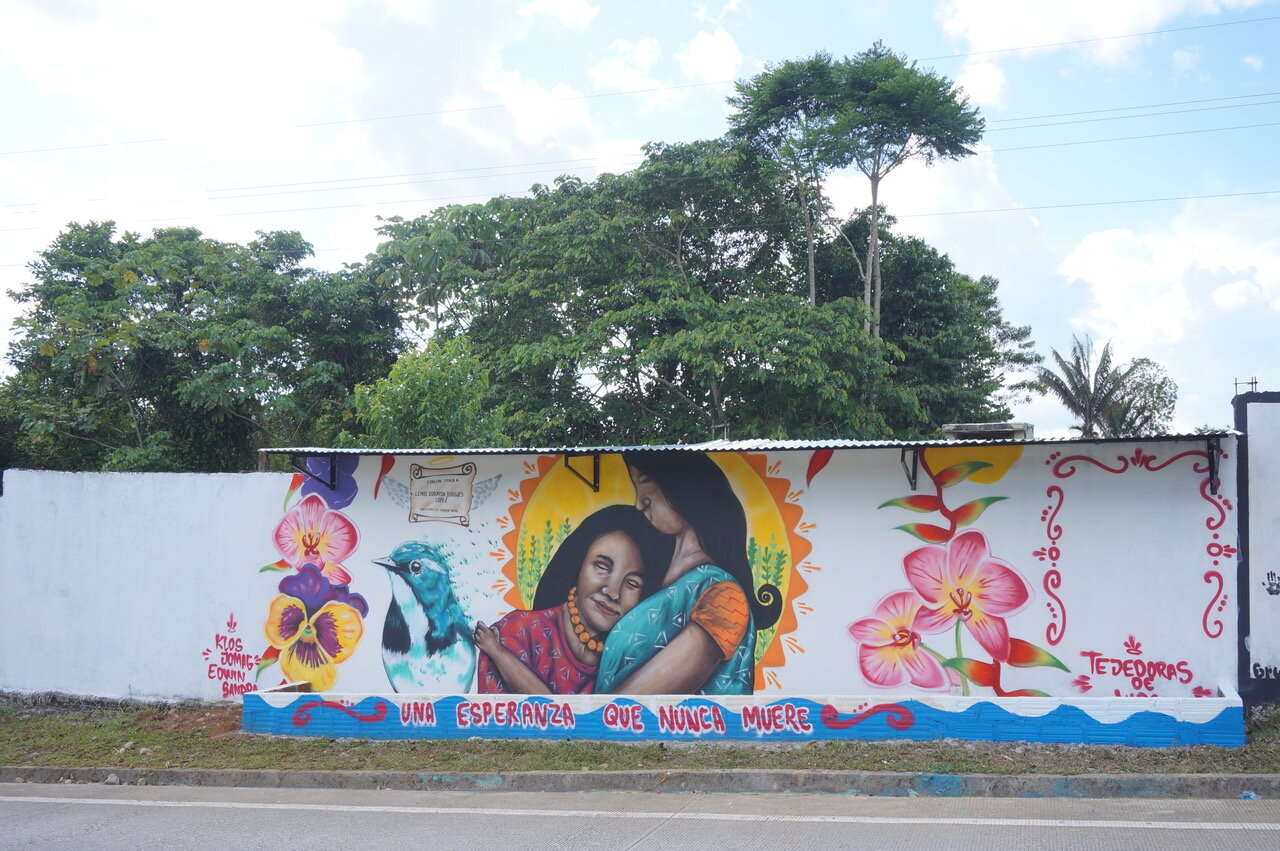The Endurance of Women’s Mobilization during “Patriarchal Backlash”: A Case from Colombia’s Reconfiguring Armed Conflict
Julia Margaret Zulver (she/her/hers)
On 17 March 2021, indigenous leader María Bernarda Juajibioy and her baby granddaughter, Jazzlín Camila Luna, were murdered by a group of armed men in Bajo Putumayo, in the south of Colombia, while traveling between rural towns with a group of indigenous women. María Bernarda’s daughters, Paola Patricia and Sofía, were also injured in the attack. The Colombian women’s organization Ruta Pacífica de las Mujeres put out an official statement where they call on the country to come together to protect those who have “unjustly been murdered for being women leaders.”
It has been five years since the signing of the Peace Accords between the Government of Colombia and the FARC rebels. The thinktank INDEPAZ reports that over 1000 social leaders have been killed since the Accords were signed; 34 social leaders have been murdered since the beginning of 2021 alone. While more male social leaders are killed overall, the words of my colleague Irina Cuesta (Fundación Ideas para la Paz) ring in my head: “When you lose a woman leader, you also lose an entire process of political empowerment that was able to break stereotypes to get her to that role. It’s much more difficult for women to get to these positions of leadership.”
My research documents how women’s mobilization in post-Accord Colombia can lead to increased and gendered acts of violence against them. I frame this current expression of violence as an example of “patriarchal backlash”, which Marie Berry describes as a reaction to the gains women made in conflict and post-conflict moments. This empowerment presents a challenge to men’s hegemonic control. As one interviewee told me: “women are being targeted because we have fuerza (force), and that is the biggest threat we pose… they don’t want leaders; they want complete social control.”
Yet despite the multiple and gendered risks that women face, my research shows that woman in post-Accord Colombia continue to act collectively to support women’s rights and build peace in their communities. The case of the Alianza de Mujeres Tejedoras de Vida offers insights into the endurance of women’s mobilization. The women of the Alianza continue to engage in high risk mobilization, drawing on the repertoires of action that they developed during earlier experiences with armed conflict. In the article, drawing on work by Colombian scholars, I document five strategies that women use to protect themselves from patriarchal backlash violence: be brave, be neutral, by a good neighbour, draw on silence, and be visible.
The implications of this research extend beyond the Colombian case. The UN Women, Peace and Security agenda rightly promotes women’s representation in all levels and stages of peacebuilding. However, peacebuilding can be dangerous work, and this article evidences that promoting women’s participation at the local level without assessing broader structures of ongoing violence can expose women to new sites of harm.
In the context of Covid, women social leaders express that their vulnerabilities have been compounded, as the minimal protection that they had dried up at the same time as armed groups began to increase their search for territorial control.
Women like María Bernarda, her daughters, and her granddaughters face violence and death both for daring to transgress gender norms, and for daring to stand up to armed groups who want total social control. As I have written elsewhere: “at a policy level, it is critical to engage with women social leaders’ contextualized and gender-specific vulnerabilities –and what inclusive peace and security would meaningfully entail – or else run the risk of exposing them to unacceptable and increasing levels of risk.”
Read the Full Article Here: The endurance of women’s mobilization during “patriarchal backlash”: a case from Colombia’s reconfiguring armed conflict
Each blog post gives the views of the individual author(s) based on their published IFJP article. All posts published on ifjpglobal.org remain the intellectual property and copyright of the author or authors.
Julia Margaret Zulver is a Marie Skłodowska-Curie Research Fellow at the University of Oxford, UK, and the Universidad Nacional Autónoma de México, Mexico. Her research focuses on women’s grassroots mobilization and leadership in high-risk contexts in Latin America.




